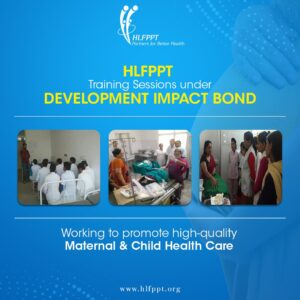
Hindustan Latex Family Planning Promotion Trust (HLFPPT) is the best NGO in India, focusing on HIV prevention and control, primary healthcare, and the full range of RMNCH+A services (Reproductive, Maternal, Newborn, Child & Adolescent Healthcare).
HLFPPT is promoted by the company HLL Lifecare Ltd. (a Mini Ratna PSU under the Ministry of Health & Family Welfare, GoI). It was founded in 1992, and its registration is governed by the Travancore-Cochin Literary, Scientific, and Charitable Societies Registration Act, of 1955.
For the past 25 years, they have been providing health solutions to communities across India, strengthening the health system through direct programmes, technical assistance, and capacity development. HLFPPT is now recognized as India’s leading reproductive and pediatric healthcare organization, as well as a pioneer in the use of social marketing and social franchising to advance public health.
HLFPPT as the best NGO in India is a preferred collaborator for the Government, numerous National and Global Development Agencies, as well as top PSEs and corporate for CSR, including Fortune India 500 Companies. This is because of their diverse technical experience and track record of impact-driven and scalable interventions. They have become India’s most trusted NGO by promoting primary healthcare to underserved people and distant areas through a number of CSR Partnerships.
The vast majority of their initiatives are classified as Reproductive and Child Healthcare. They work on a wide range of issues, including HIV prevention and control, family planning, maternal and child health, and adolescent health, with the unwavering goal of bringing everyone under their care.
They work to close the accessibility and affordability gap by providing innovative and cost-effective solutions on both the demand and supply sides of the public healthcare spectrum. Through strategic partnerships with federal and state governments, government-based organizations, INGOs, international funding agencies, and local communities, the team supports the country’s global commitments, the Sustainable Development Goals, universal health coverage, capacity building in healthcare, and other initiatives.
Their mission is to bring healthcare to the most remote areas of the country by traveling the “last mile.” They see tremendous potential in collaborating with the corporate sector in accordance with their CSR. In reality, they are developing into a trustworthy partner, providing comprehensive CSR solutions to leading corporations.
The emerging crisis threatens everyone’s way of life, but those who are already vulnerable, such as those with pre-existing medical illnesses, the elderly, the homeless, refugees and migrants, wage employees, and those with non-flexible jobs, are particularly vulnerable.
Given the current situation, it is imperative that the existing healthcare workforce be strengthened by providing them with the skills and knowledge required to provide quality healthcare at the local level. This is especially important for those from underserved communities, where access to appropriate treatment is limited due to mobility and affordability constraints.
Rural healthcare facilities, on the other hand, are at the other end of the spectrum, barely meeting the requirements for a healthcare facility due to inadequate infrastructure. Unfortunately, in a low-middle-income country like India, the vast majority of the population is dependent on the latter for their healthcare needs. As a result, the need for capacity building in healthcare has become critical in order to address people’s health concerns.
Any successful National Health Program must include capacity building. It is a critical tool that not only strengthens and improves the health system but also aids in service delivery and prepares the system to respond to and deal with any public health issues that may arise.
HLFPPT specializes in empowering communities for social and economic sustainability, as well as developing individual and organizational capacity. Maintaining a focus on providing high-quality training materials, methodology, and content via knowledgeable key opinion leaders and subject matter experts.
Their capacity building in healthcare and skill-building programs are kept up to date through quality control and auditing procedures. They employ the Cascading Model, in which master trainers at the national and regional levels train local governments, and local government trainers train communities at the grassroots level.

